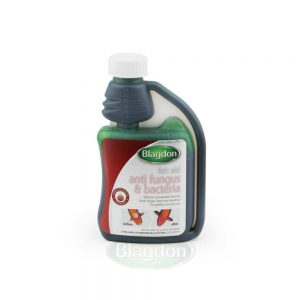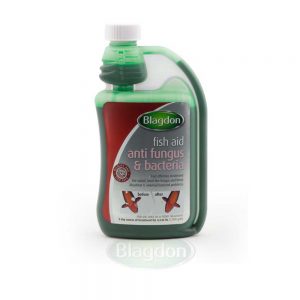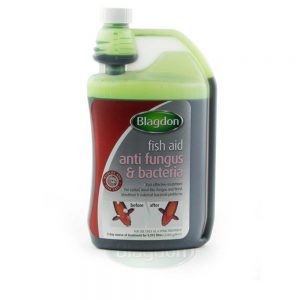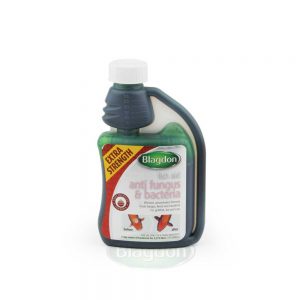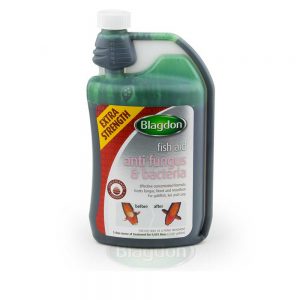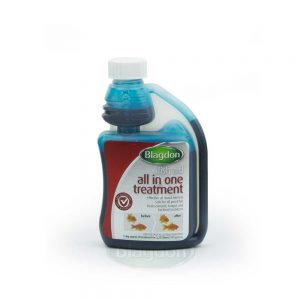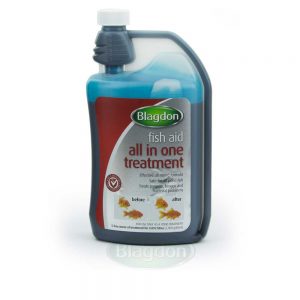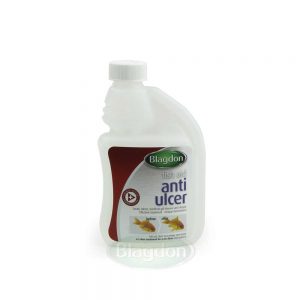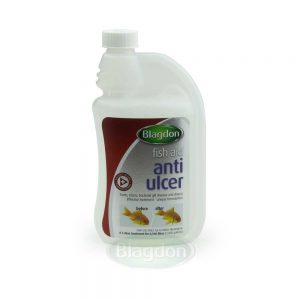Pond Fish Treatments

Keep your pond fish happy and healthy with our selection of treatments. We offer solutions that target common issues, such as bacterial infections, fungal infections, parasites, and water quality problems.
Fish treatments FAQs
How do I know if my pond fish need treatment?
Your fish may need treatment if they are showing unusual behaviour such as:
- Changes in behaviour: Look out for fish that are swimming irregularly, staying at the surface or bottom of the pond, or behaving aggressively.
- Physical abnormalities: Check for any visible signs of disease or injury on the fish’s body, such as lesions, sores, or discolouration.
- Loss of appetite: If your fish suddenly stops eating or shows a decrease in appetite, it could be a sign of a health issue.
- Gasping for air: Fish gasping for air at the surface of the water may be experiencing oxygen deficiencies or other respiratory problems.
- Erratic swimming patterns: If you notice your fish swimming erratically or struggling to maintain their balance, it could be a sign of a health issue.
Regularly monitor your fish for any changes in their behaviour or appearance so you can address any issues promptly. Testing the water quality of your pond every so often can also help you determine if your fish are in good health.
What are common illnesses that affect pond fish?
Some typical illnesses in fish can include parasites, bacterial infections, and fungal infections. Parasites like Ich can cause white spots to appear on your fish, while bacterial infections can display symptoms like redness, bloating, or fin rot. Fungal infections may present as a cotton-like growth on your fish’s skin.
Can I use multiple pond fish treatments at the same time?
While it may be tempting to use multiple pond fish treatments, it is generally not advisable.
Different treatments can have different active ingredients and target different conditions. Using multiple treatments simultaneously can increase the risk of chemical imbalances, stress on the fish, and even toxicity.
Can I use treatments for aquarium fish on my pond fish?
This depends purely on whether or not the product states it’s suitable for pond use.
Ponds typically have a larger volume of water and different environmental conditions compared to aquariums. Therefore, choose medications specifically formulated for ponds or those that mention suitability for larger bodies of water.
Always follow the instructions provided on the medication packaging and consult with a fish or pond specialist if you have any doubts.
How do you treat stressed pond fish?
Fish can become stressed in pond environments for various reasons, such as poor water quality, overcrowding, or inadequate nutrition. One way to treat stress is to add our Pond Guardian Tonic Salt.
It’s unique formulation helps to create the perfect environment for your pond fish. This product stabilises pond water conditions, including all the pH value. All you have to do is simply add it directly to your pond.
Another option is our Stress Away treatment. This should be used as a monthly disease preventative to support your fish when introducing new fish. Or for temperature changes during spring and autumn and times of bad water quality.
How do you treat fish parasites?
Our Anit-Parasite treatment provides fast effective treatment for white spot, flukes and slime disease in pond fish. It should be used when fish are flicking or gasping, have a white cloudy appearance to eyes, skin or gills; or when fish are covered in white spots (salt size).
If you’re unsure about the dosage of our water treatments, you can use our dosage calculator for exact requirements.
How can I prevent illnesses in my fish?
One way to protect your fish from illness is to maintain good water quality. Regularly test the water parameters and make sure they are within the ideal range for your fish species. Proper filtration, aeration, and regular water changes can all help to keep the water clean and healthy for your fish.
Another important step is to quarantine new fish before adding them to your pond. This can help prevent the spread of any potential diseases or parasites that the new fish may carry. Feeding your fish a balanced diet and avoiding overfeeding can also help boost their immune systems and avoid illness.

